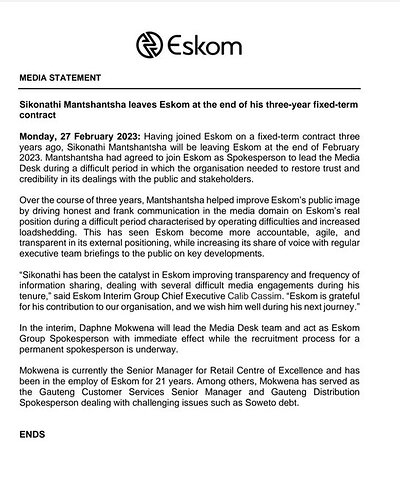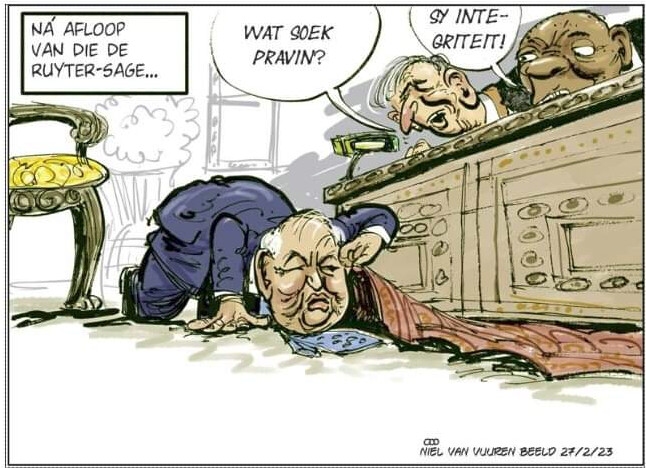He is not wrong. It isn’t in there.
Even things like water, is a negative right (they cannot deny you access to water), not a positive right (they have to install running water inside your house, wherever you decide to build it).
The constitution only refers to electricity when it allocates the distribution thereof as a function to local government.
However… there is a precedent-setting court case from 2019, Joseph and Others v City of Johannesburg and Others. Here the argument was that they tenants had a right to adequate housing, and housing could not be considered adequate if they were cut off from the electricity that was available in the area (tenants were willing to pay, but the landlord was in arrears).
The article also mentions what I said about water, a negative obligation exists (government may not interfere with legal and/or natural access), but the government cannot force Eskom to give you power.
The law does however give citizens some basis to ask their local governments to do something about it, given that without electricity, certain basic rights (education, housing, and the all important one, dignity, are all infringed).
Personally I fear that “dignity” is a bit of a dangerous one to mess with. One would have to ask whether it is truly impossible to live with dignity when there is no electricity, which I think will be hard.
Do a thought experiment with internet access, if you will. Or pretend it is 1920 and electricity is something only in the cities…
Edit: In hindsight, given that electricity supply issues very quickly leads to sewage issues, and then health issues, yes, I suspect it will become a constitutional issue very quickly.


